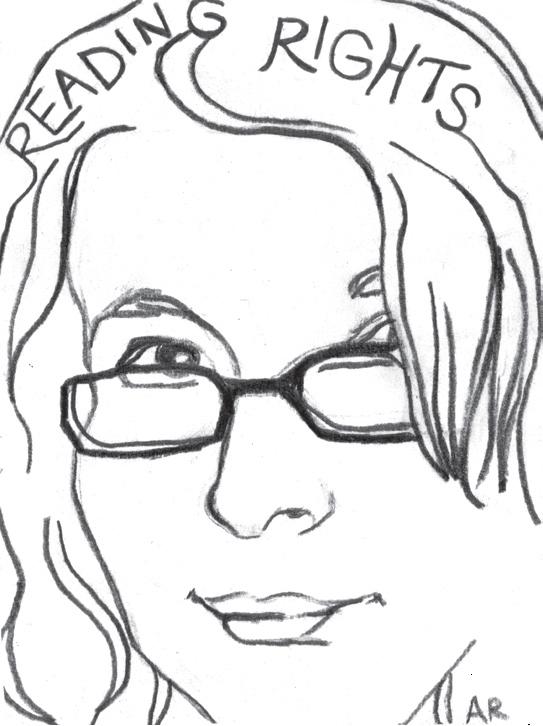
(Drawing by Annie Raccuglia)
Leo Tolstoy, in the latter part of his career, kind of exploded with distaste for new art, for art that was incomprehensible to the masses. He asserted in the book “What is Art?” that true art has to communicate new feelings from artist to audience. Art that doesn’t do this lacks sincerity.
We live in a world where popular art isn’t necessarily expected to be sincere. Tolstoy thought that if given the option, the masses would choose art that was good in the sort of spiritual sense. Art as a result was tied up in moral considerations. Did frivolous art make frivolous people? Probably.
Have you ever bought a book for the beach or a vacation? It’s usually described as one you can just sink into without worrying about the rest of the world. That’s a glowing review, feeding into our notions of art as escapism. We can jump into reading the Twilight series and forget that we’re not usually concerned with vampires and werewolves and the havoc they can wreak on a young and impressionable uterus.
The phenomenon of Twilight moms was full of language that condemned these women for not having anything better to do. They stayed home and read these extended pamphlets for abstinence-only education that allowed them to fall in love with a handsome and honorable vampire. These women had it all backwards because they chose the vampire world over the real world where they had responsibilities.
We don’t condemn the same escapist impulse in ourselves when we go see the newest romantic comedy. It’s okay for us to have celebrity crushes that are somehow supposed to enrich our experience of the work of art itself. I, of course, hesitated before I wrote work of art because I was thinking about Judd Apatow and about potentially worse things like “Juno.” Sincerity in a movie with an indie sensibility is always tainted with the overt aim of the primary artist or the person who says, “This will be sincere, and it will mean things to people.”
That’s what emo was as a genre. People ridiculed it for too much feeling, for feeling that was out of place. And something strange happened when we started to ridicule it for its insincerity, doubting that anyone could feel the things that these artists were singing about. The word “quirky” evolved from that, evoking the sense that one could be entertained in a traditional sense while still understanding the message of the piece.
We are all Twilight moms in some sense because we expect art to give us that feeling of falling away from the world into something better. Better could be more entertaining, more romantic or more thrilling, but for the most part, we don’t seem to want art to give us things we need to think about. Because if art teaches a lesson, it can change how we act — and that’s too serious.
And if art does have an effect on how we act, it should seep in without our knowledge and without any effort on our parts. Too obvious and it becomes laughable, like when Chris Carrabba of Dashboard Confessional sings, “I wish that I was anywhere, with anyone, making out!” It’s not real, according to us — and even if it was, why would we want to hear it in a song?
